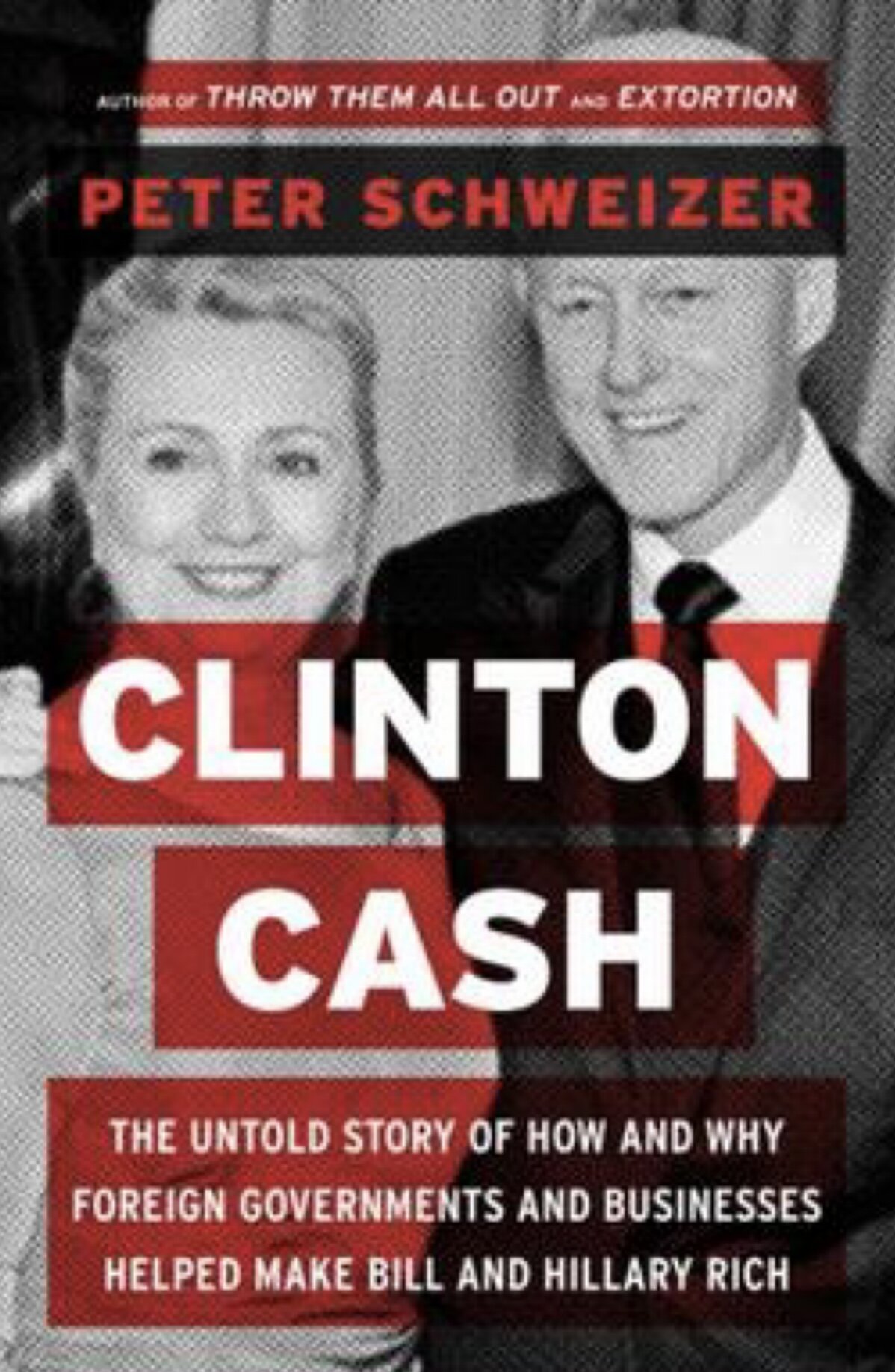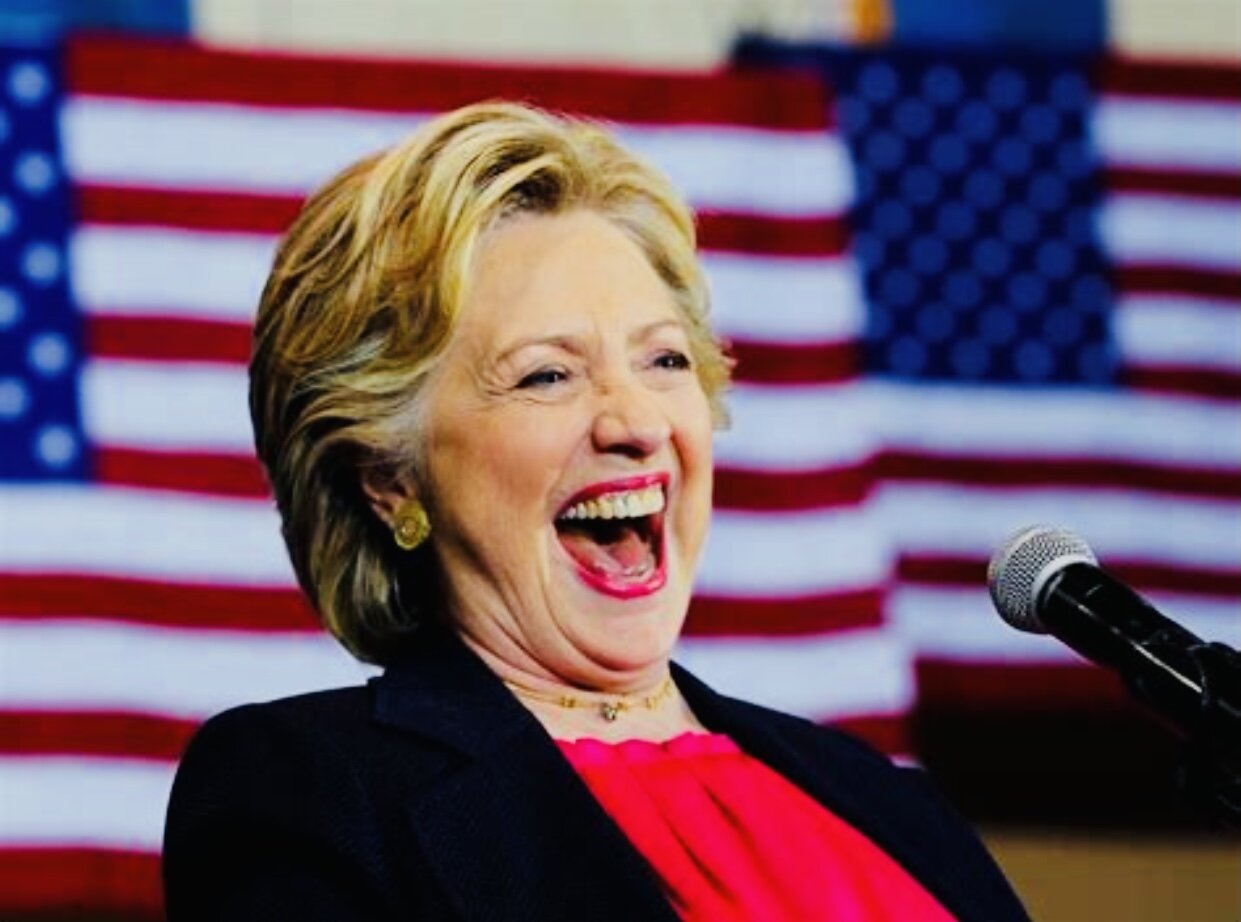Organized crime requires a lot of money and reputation laundering,
According to Bill, his interest in working on AIDS issues stems primarily from a conversation he had with Nelson Mandela shortly after leaving the White House. Clinton says Mandela asked him to work on these issues to help Africa.
Does Clinton's motivation matter? It does if his ultimate purpose is to make himself look good. If that is the case, he will focus on appearances rather than actual results. And making the Clintons look good is clearly central to the foundation's purpose.
Its website is replete with pictures of Bill, and increasingly of Hillary and Chelsea, on humanitarian missions in remote locales in Africa or Asia. The press office also churns out media releases announcing foundation news or the activities of the Clinton family. The Clinton Foundation's media machine focuses heavily on the family's activities.
One of its projects involved helping to pay for the refurbishment of a pediatric clinic in the African country of Lesotho. When Bill showed up in July 2006, he was greeted at the Maseru airport with a red carpet and a receiving line of government officials.
For good measure, "cultural groups performed dances and songs," according to US diplomatic cables. The king of Lesotho gave Bill a knighthood. Following the “celebratory reception," Bill headed to the pediatric clinic his foundation had helped equip where he was serenaded by "choirs and children."
Ignored in foundation releases and related press reports was the fact that months earlier, in December 2005, the Baylor College of Medicine and Bristol-Myers Squibb had opened a pediatric clinic in the same town. But there was no parade or celebration. “No one has star power like Clinton," noted Dr. Mark Kline, president of the Baylor International Pediatric AIDS Initiative.
"But the casual observer might be led to believe that no one else is doing anything, and that may draw resources away from others." But beyond good publicity, the foundation serves other purposes as well. As we have already seen, Clinton's visits to foreign locales frequently mix business with charitable work.
When Bill flies into a country with an entourage, which may include businessmen with matters before the local government, he is there ostensibly to do (or simply talk about) his philanthropic work. But these visits often involve making useful introductions that coincide with major business deals in which Clinton Foundation donors are involved. The Clinton Foundation also provides opportunities for foreign leaders and foreign investors to burnish their (sometimes shaky) reputations and images by association with its praiseworthy activities.
Dictators like Nursultan Nazarbayev in Kazakhstan, Meles Zenawi from Ethiopia (whom we will meet in chapter 7), and Paul Kagame of Rwanda might have terrible reputations when it comes to human rights, but they are invited guests at Clinton Foundation events where they are praised for their leadership.
Kagame, for example, was a "Clinton Global Citizen of the Year" in 2009. He was praised by the foundation as a “brilliant military commander" and given the award for "leadership in public service."
What you won't read in his bio is the fact that Kagame arrests his political opponents and censors journalists. Nor is there mention of the fact that the United Nations accuses Kagame's militias of raping and slaying thousands of Hutu.
It is widely believed that Kagame is largely responsible for fueling the civil war going on in the neighboring Democratic Republic of Congo. Whenever Kagame speaks before the Clinton Foundation or meets with Bill, he is quick to publicize it.
He clearly recognizes that partnering with an ex-president grants him added legitimacy. The Clintons point out that neither Bill, Hillary, nor Chelsea take a salary from the Clinton Foundation. This is true-the hundreds of millions that pour into the foundation do not benefit the Clintons directly. But they profit from the foundation in a way that is both indirect and far more lucrative: by taking enormous speaking fees for talking about their charitable work.
In his early post-presidential years Bill's speeches were largely about his views of the world or his experiences in office. But in more recent years many of his speeches involve talking about the work of the foundation.
In October 2006, for example, Bill was paid $150,000 for a speech to the Mortgage Bankers Association for “discussing world events and his work on behalf of the William J. Clinton Foundation."
In September 2006 he was paid $450,000 to speak at the Fortune Forum, which is a charitable fund-raising event in London. These are just a few examples among many instances. Clinton's go-to speech, entitled “Our Common Humanity," is largely about the work of the foundation. The Clintons' charitable work puts money in their pockets in other ways, too. In 2007 Bill released a book called Giving that high-lighted the charitable work of the Clinton Foundation and those who work with it. He made $6.3 million from sales.
The book was widely criticized. Peter Baker, now of the New York Times, called it an “extended public service announcement masquerading as a book."
Blurring their charitable, political, and financial interests has served the Clintons well. When Hillary became secretary of state, the practice continued. Indeed, it reached a whole new level.











